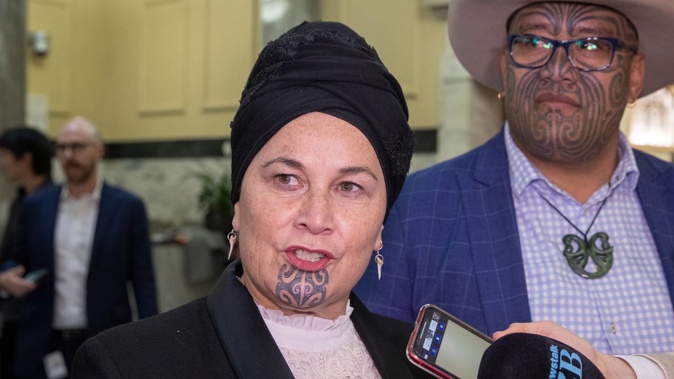
Te Pāti Māori has called out the Government over its "disappointingly weak" carbon emissions budgets and says it is giving predominantly Pākehā farmers a free pass while punishing Māori landowners.
They and Act were the only two parties to vote against the budgets, which set limits on how much carbon dioxide equivalent greenhouse gases the country can emit over three periods up to 2035, as part of a long-term target of net zero emissions by 2050 and limiting global warming to under 1.5C.
Act took an entirely different approach, saying the budgets and Zero Carbon Act they came from need to be thrown out entirely.
Next Monday the Government will unveil the Emissions Reduction Plan, which will show how these budgets will be achieved.
Labour, National and the Green Party all voted in favour of the budgets in a Parliamentary debate today, continuing a run of cross-party support and collaboration that originally got the Zero Carbon Act over the line in 2019.
Te Pāti Māori co-leader Debbie Ngarewa-Packer said they'd "made clear" to Climate Change Minister James Shaw that more urgent and transformative action was needed.
"Te Paati Māori does not support the proposed emission budgets – it's disappointingly weak – as we believe that they should be tighter and more ambitious."
The party called for a greater focus on reigning in methane emissions, which make up 44 per cent of New Zealand's gross emissions and place it among the highest per-capita methane emissions in the world (sixth-highest for emissions overall per capita).
The party also pointed out what it saw as a disparity with current exemptions for farmers from the Emissions Trading Scheme while the Government was looking to exclude pine plantations, which would greatly impact Māori landowners who rely heavily on forestry on marginal land.
"The Minister is giving predominantly Pākehā farmers a free pass while punishing Māori landowners through these changes; that is not a just transition by any stretch of the imagination.
"A just transition will never be true if it ignores tangata whenua, and that is what you are doing.
"The fact that the Minister knows it's weak is concerning. I feel real ahora for our Paati Kakariki (Green Party), who know better."
Shaw, also Green Party co-leader, said he too was worried these emissions budgets did not go far enough while acknowledging some MPs felt the budgets were "unaffordable or unachievable".
However, he said the emissions budgets reflect the Climate Change Commission's advice, as a politically neutral expert-led body.
"These budgets are grounded in what the science says is needed and in a ground-up analysis of what our economy can do over the coming 15 years.
"So don't take my word for it; take the commission's word for it."
Act Party climate change spokesman Simon Court did not speak during the debate, but said in a statement the Emissions Trading Scheme should be the primary response to climate change.
He also called for these budgets to be met through high-quality foreign carbon credits.
National Party co-leader Nicola Willis said they supported the budgets, but would not necessarily support the plan, to be released Monday, on how to meet them.
"That will be because we are committed to lowering emissions in the most effective way possible and in the most responsible way possible."
The party was concerned about a focus on planting pine to meet targets, reducing productivity – particularly in the food sector, and risking jobs going overseas.
The initial emissions budgets are set over three time periods.
The first covers 2022-2055, allowing no more than 290 megatonnes to be released.
At about 72MT a year this would be roughly two less than emitted over the past five years and just under 3MT more than projected, but in line with Climate Change Commission recommendations.
The following five years, 2026-2030, would see ambition increase, with 305MT allowed or about 61 a year. This was about 20 per cent less than the five years to 2021.
The third period, 2031-2035, allows for 240MT at 48MT a year, or a 35 per cent reduction on the five years to 2021.
The plan about how to meet these budgets would come out next Monday, May 16.
The Government has said climate and health will likely be a major focus of Budget 2022, to be delivered on Thursday, May 19.
- by Michael Neilson, NZ Herald
Take your Radio, Podcasts and Music with you









